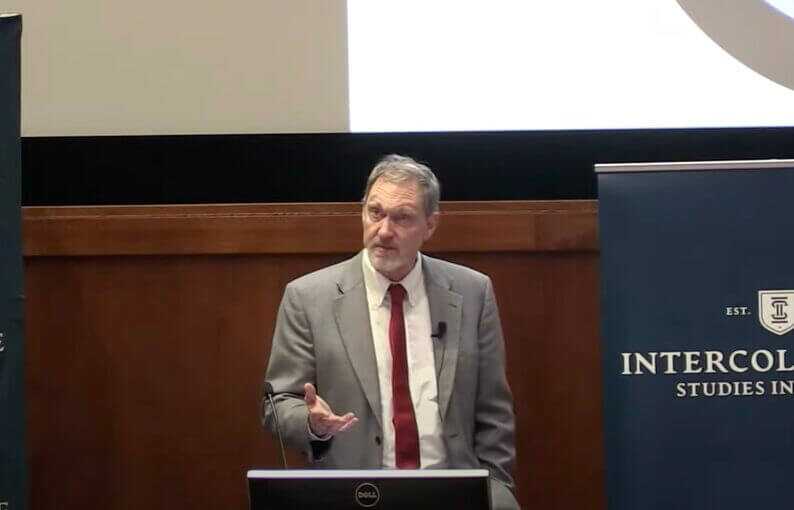
Estimated reading time: 3 minutes
Table of contents
Let’s dive into the debate around gun laws and their impact on crime rates in the U.S., specifically focusing on right-to-carry (RTC) laws.
Carlisle Moody and John R. Lott, researchers from the Economics Department at the College of William and Mary and the Crime Prevention Research Center, respectively, have been dissecting this topic for years.
Recently, they took a stab at addressing critiques from another study, offering a new perspective on how concealed carry laws might influence violent crimes, particularly murders.
Their latest paper, “Estimating the effect of concealed carry laws on murder: A response to Bondy, et al,” serves up a detailed analysis worth a closer look.
Breaking Down the Research
Moody and Lott argue that previous research oversimplifies the effects of RTC laws, missing the nuances by not distinguishing between states that adopted these laws early and those that were late to the party.
They emphasize that timing is crucial—states with a longer history of RTC laws show different trends compared to those that jumped on the bandwagon later.
In their analysis, they point out that studies often use outdated methods that fail to account for these timing differences, potentially skewing the results.
For instance, the two-way fixed effects models used in some studies might introduce bias by improperly comparing states based on when they adopted RTC laws.
What the Numbers Say
Using data from 1970 through 2018, Moody and Lott found that when RTC laws are enacted, there’s generally a negative effect on murder rates, meaning these laws could be associated with a decrease in murders.
This goes against some recent claims that RTC laws increase homicide and firearm-related homicides.
SEE ALSO: Clay’s Love for the MK 47 Mutant (w/Mag Tests)
However, it’s not all straightforward. When they looked closer, the data suggested that newer RTC states, those that adopted the laws more recently, might not experience the same decrease in crime as the early adopters.
They suspect this could be due to differences in how the laws were implemented or the socio-economic conditions in these states.
The Study’s Abstract
In response to our short paper in Academia Letters, Bondy et. al. published much longer response in this journal. We show that the Bondy et. al. criticisms are misleading and irrelevant. We present new estimates of the effect of right-to-carry and permit-less “constitutional carry” laws on the murder rate. We find that the traditional two-way fixed-effects analysis shows that right-to-carry laws have a negative but only marginally significant effect and that constitutional carry laws have an insignificantly negative effect. We also apply new difference-in-differences analyses to the same data and find that both laws have a negative but insignificant effect on murder. We conclude that, although the standard errors indicate that these coefficients are not precisely estimated, it cannot be claimed that either one of these laws significantly increases murder.
The Ongoing Debate
Moody and Lott’s paper also responds to criticisms from other researchers, like Bondy and colleagues, who argued that Moody and Lott’s earlier findings were flawed.
They challenge these critiques by re-evaluating their models and incorporating more sophisticated statistical techniques to address the criticisms.
They hope their findings will spur more accurate and nuanced research in the future, using methods that truly capture the complex dynamics at play when laws change and how these changes affect crime over time.
Closing Thoughts
As states continue to tweak their gun laws, and as researchers refine their methods, we’ll likely see more studies attempting to untangle the web of factors that influence crime rates.
Moody and Lott’s latest contribution adds another layer to our understanding, suggesting that the impact of RTC laws is not only about whether they increase or decrease crime, but also about when they’re implemented and how different states adapt to these changes.
Stay tuned as there’s sure to be more data, more analyses, and, inevitably, more discussions on the horizon.
*** Buy and Sell on GunsAmerica! ***












RTC laws here in the State of Texas saved me from getting rob at a super walmart. I was picking up my order of water at curb side p/u area. These two men were walking to me and they wanted my money. I was on the opposite side of my truck so they didn’t see my gun. I walk around the truck and ask them if they believed in hell and thats when they saw my hand on my gun. They turn around an walk away open carry laws made a difference that day. With even firing a shot thank God for open carry.
the right to carry is not only a constitutional right, but also when the bad guy with a gun knows or thinks there may be a good guy(s) with a gun possibly close in the area has to be a deterrent to committing the crime they had in mind. as good as police officers are they cant be everywhere at the same time, and cant protect everybody at once so nobody would need to carry a weapon. so to that end, everybody that can legally possess a firearm (the good guys and gals) should train, become proficient, safe, and carry a weapon for their and their family’s protection.
sure reduced innocent people being murdered here, now it’s mostly the local party goers killing each other!